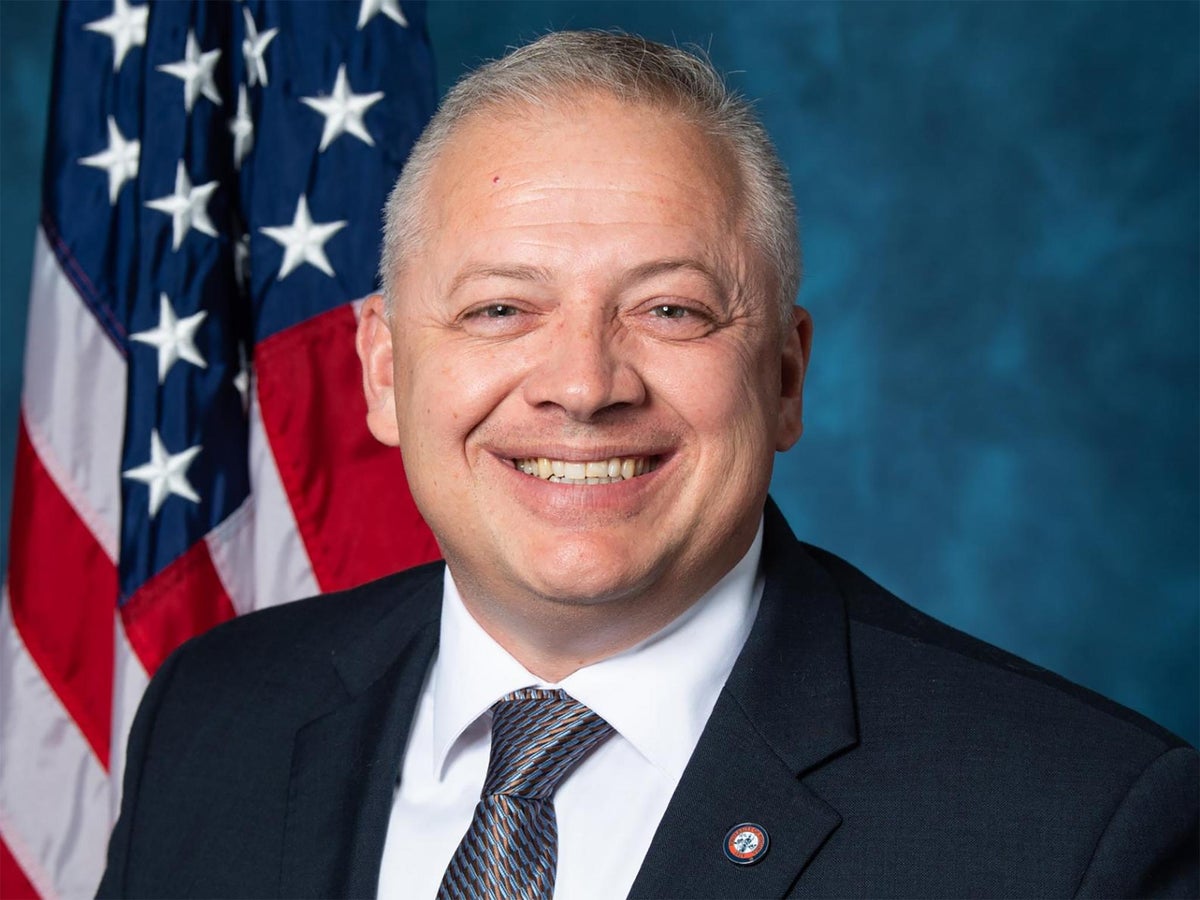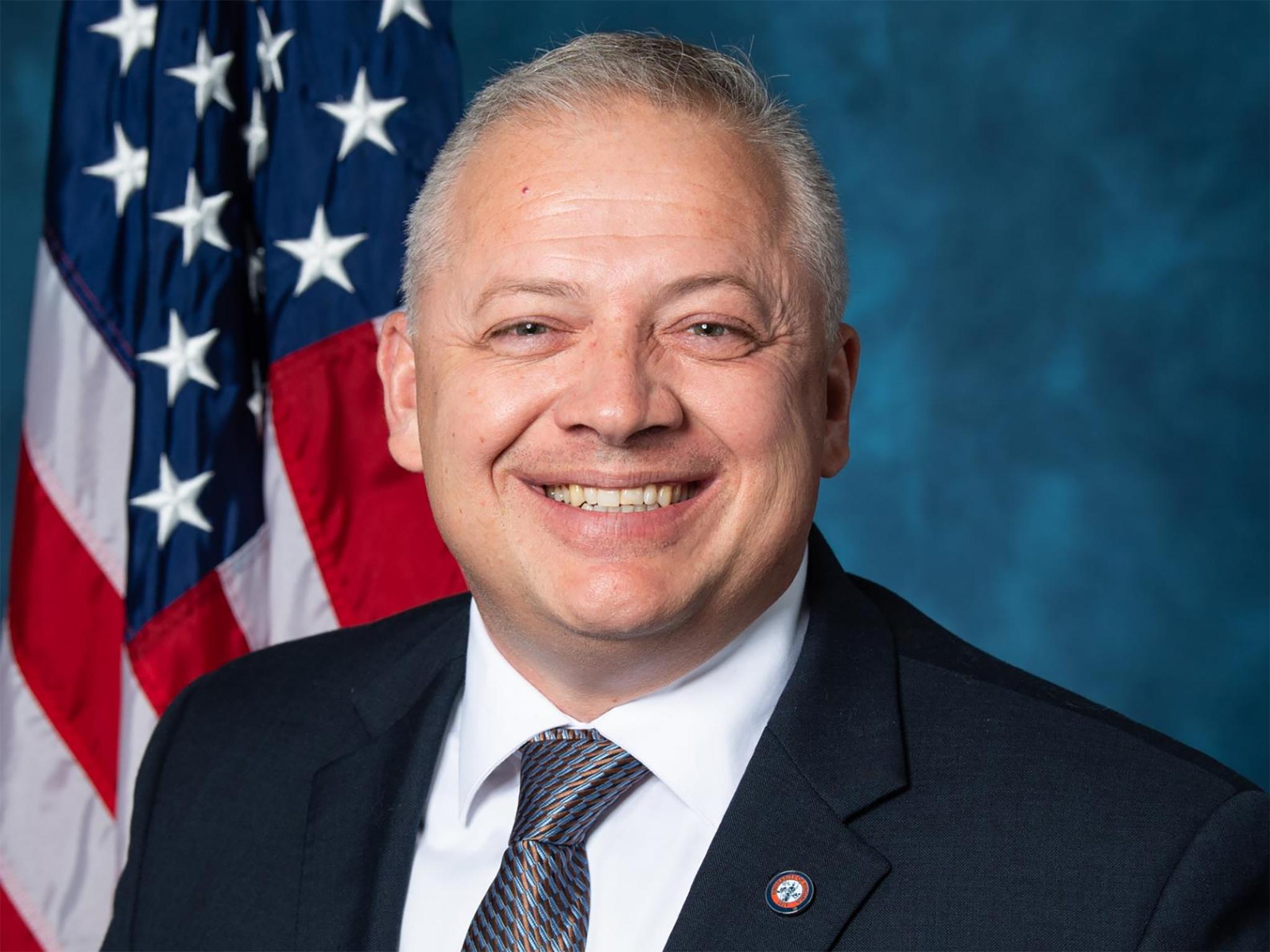
When former Virginia GOP congressman Denver Riggleman revealed that there had been a phone call between the White House and one of the many pro-Trump rioters who breached the US Capitol during the January 6 attack, the news appeared to be a significant finding with clear implications for the investigation into the violent episode.
In an appearance on CBS News’ 60 Minutes to promote his book on the select committee probe, The Breach, Mr Riggleman presented the finding as an “a-ha moment” but not a “smoking gun” connecting the Trump White House with the riot. Mr Riggleman served as a staffer for the committee.
The identity of the call recipient was later revealed to be a rioter named Anton Lunyk, one of three friends from New York who were filmed on a livestream behind notorious racist troll Tim Gionet (aka Baked Alaska) in the office of Oregon Senator Jeff Merkley during the riot. But the call only lasted nine seconds and was placed hours after Lunyk (who later pleaded guilty to several crimes related to his participation in the riot) had left the building.
Mr Riggleman left the select committee’s employ in April, months before it began presenting findings in what has become a series of blockbuster public hearings. The publication of his book — which was co-authored with former Yahoo! News White House correspondent Hunter Walker — has rankled select committee members and aides who have said his tome reflects an incomplete understanding of the panel’s work.
Here are the top takeaways from Mr Riggleman’s book:
The ex-House member was frustrated by what he described as an unwillingness to fully follow the data and an overemphasis on stopping leaks
Mr Riggleman expounds on previously reported details regarding the makeup of the panel’s investigative staff, which was divided into separate teams and tasked with looking into different aspects of the riot.
He argues that the heavily siloed structure of the investigation was born out of a desire to keep details of the investigation from appearing in the press by making the probe so heavily compartmentalised that no one person could know very much about what was going on at any given time.

Riggleman thought several top Democrats on the panel should not have been assigned to it
Early on in his book, Mr Riggleman runs down the list of members whom House Speaker Nancy Pelosi assigned to serve on the select committee.
Mr Riggleman had kind words for two of the Republican members — Representatives Adam Kinzinger and Liz Cheney — on the committee, whom he described as having “real spine” for continuing to serve on the panel while “knowing the whole [House GOP] conference hates [their] guts”.
He also praised most of the Democrats on the committee, including Florida’s Stephanie Murphy (“more and more impressive as our work went on”) and Elaine Luria of Virginia (“incredibly savvy and suffers no fools”).
But he had relatively harsh words for three of his former colleagues.
He slammed House Intelligence Committee Chair Adam Schiff as “exceptionally political”, based on his conduct during the first impeachment investigation into former president Donald Trump and said Mr Schiff’s “later actions on the committee” did not “entirely disabuse” him of that opinion.
And he believed two other Democrats — Representatives Zoe Lofgren of California and Jamie Raskin of Maryland — should not have been on the select committee at all.
Ms Lofgren, a veteran legislator who has worked in one capacity or another on every presidential impeachment save for Andrew Johnson’s in the late 1800s, is also chair of the House Administration Committee, which is responsible for oversight of the Capitol police. And Mr Raskin — a former constitutional law professor who led the second impeachment of Mr Trump in the wake of the riot — also serves on that committee.
Mr Riggleman wrote that he “thought they were unfortunate picks” because the House Administration Committee “needed to be investigated along with everything else” because it would have had oversight of the Capitol security arrangements in the run-up to the riot.
He thought one Republican member was trying to prevent the panel from investigating Ginni Thomas
At one point, Mr Riggleman says Ms Cheney, the panel’s Republican vice-chair, was working to prevent the committee from looking into the actions of Ginni Thomas, the longtime GOP activist (who recently agreed to sit for an interview with committee investigators) and her husband, Supreme Court Justice Clarence Thomas. But Mr Riggleman later acknowledges his suspicions regarding the high court’s senior associate justice stemmed from an email the committee found from a “cthomas”, and said that email address turned out to be another GOP operative.
He does, however, describe Ms Thomas — who spent the weeks between the 2020 election and the Capitol riot exhorting state legislators to authorise electors for Mr Trump regardless of their state’s popular vote results — as someone who “seemed mentally unwell”.







